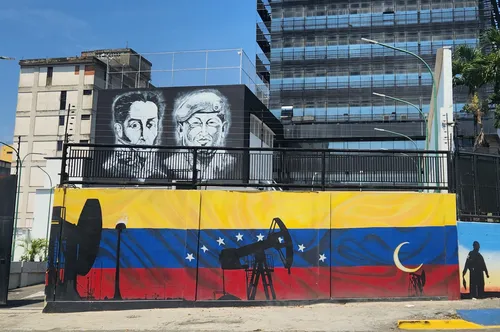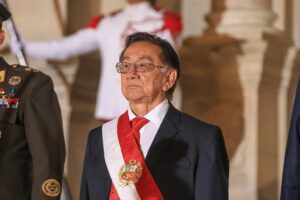
After almost 7 years of sanctions against the Venezuelan economy, the United States issued licenses in October 2023 so that Venezuela could sell its oil on the international market. The main one, license 44, expires this Thursday (18) and the North American country has already signaled that it should not renew the permission. Even so, the state-owned oil company PDVSA is projected to increase production and revenues, even in a scenario of renewed sanctions against the Venezuelan oil sector.
Optimism is not for nothing. According to the Organization of Petroleum Exporting Countries (OPEC), Caracas increased its production by 18% in the first quarter of the year compared to the same period in 2023. According to the organization, Venezuela produced around 874 thousand barrels in March 2024. The value is still below what PDVSA estimates it produces, more than 900 thousand barrels, as it discounts oil-derived products. Data from the beginning of the year, however, reflects production already with licenses.
The president of the state-owned PDVSA, Pedro Rafael Tellechea, guarantees that, even with the resumption of sanctions against the oil sector, the company will continue to expand its business and increase production. The company expects to continue selling oil on the international market and is analyzing what the difficulties will be with the return of sanctions.
According to sources heard by Brazil in fact, the main difficulty studied is the price of oil. Previously, the company negotiated a price with each customer. The state-owned company’s idea now is to standardize prices on the international market so as not to have a lag in revenue. The idea is that sanctions do not prevent the country from selling, but make negotiations take longer.
PDVSA views the year’s growth with optimism for a few reasons. First, the scenario has changed in relation to what the market was before the licenses, with the price of a barrel having risen since the beginning of the year. If at the beginning of 2024 it was sold at US$77 (R$400) in the European Union, now it has crossed the line of US$91 (R$477).
The massacre in Gaza is also a fundamental factor in this account. Iran, Russia and Venezuela are three of the main oil and gas producers in the world. As all three are sanctioned, there is a reduction in global fuel production which, in itself, already increases the price of fuel. A fluctuation in production due to other factors, such as the recent escalation in the conflict in the Middle East, could lead to an even greater increase in prices.
A survey of the Bank of America published at the end of 2023 estimates that the price of a barrel of Brent oil could reach 250 dollars by the end of this year. In this context, sources linked to PDVSA understand that the return of sanctions against Venezuelan oil is a problem for the world and this is already a risk calculated by the United States.
Another calculation that the US has to make is in relation to refineries. Most American plants are designed to refine heavy crude oil, as is the case with the Venezuelan product. To do this, they would have to be adapted if they stop refining Venezuelan oil, which could be costly.
Today, all Venezuelan refineries are available for production, but, due to the impossibility of selling all capacity, only half are in operation. PDVSA has already put on paper that it is covering all national demand. The optimistic expectation is not just due to Venezuelan production. The state-owned company continues to negotiate with the main oil companies in the United States. The search for another front of action is also an issue analyzed by PDVSA, which is already studying the production of biofuels with Brazilian companies.
Relationship with Bogotá
One of the company’s goals is to strengthen its relationship with neighboring Çolômbia. The possibility of strengthening ties would be through agreements with the oil company Ecopetrol. The president of the Colombian company said in March that it will begin importing gas from PDVSA to meet domestic demand. The country faces a 17% deficit in fuel supply in the country.
But relations with Colombians were strained during the government of Iván Duque (2018-22). PDVSA teams found leaks in gas pipelines in Colombian territory, which hampered gas transportation to Colombia. According to technicians, the cuts were planned, as they were standardized.
The pipeline takes gas explored in the State of Zulia, in Venezuela, and supplies the eastern region of Colombia.
Editing: Rodrigo Durão Coelho
Source: www.brasildefato.com.br

